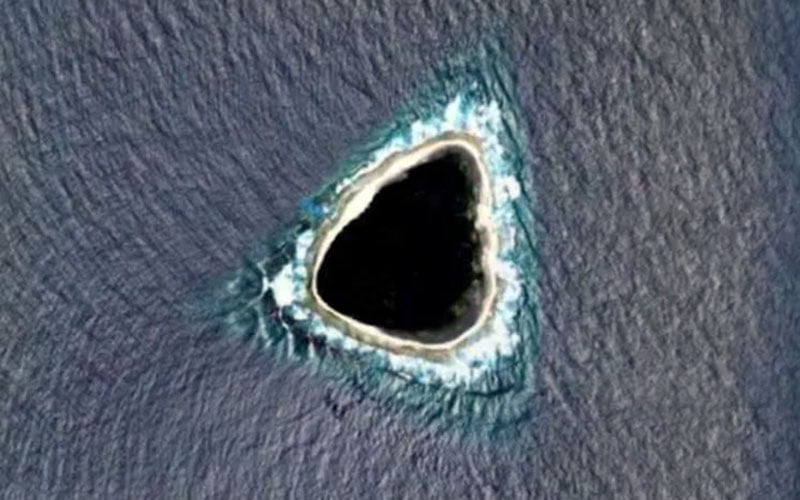
The vast expanses of the ocean have always captivated the human imagination, hiding secrets and wonders beneath their shimmering surface. Among these mysteries, a concept that intrigues scientists and laypeople alike is the idea of “black holes in the ocean.” While we are familiar with the cosmic black holes that exist in outer space, the notion of similar phenomena lurking beneath the ocean’s depths may seem both fascinating and enigmatic. In this article, we will delve into the concept of black holes in the ocean, exploring the scientific theories, potential implications, and addressing common questions surrounding this intriguing topic.
Many individuals have wondered whether black holes could exist within the ocean’s mysterious abyss. However, it is important to clarify that the term “black holes in the ocean” is not scientifically recognized in the same sense as celestial black holes. Rather, it is a metaphorical term used to describe exceptionally deep and mysterious underwater locations that have similarities to the astronomical phenomena we know as black holes. These metaphorical black holes, though captivating, do not possess the same properties as their cosmic counterparts.
The abyssal plains, located at the bottom of the ocean, hold an air of mystique that has fueled speculation about the existence of black holes. These deep-sea regions, characterized by their extreme depths and vast expanses, cover a significant portion of the Earth’s surface. Although they do not possess the gravitational pull associated with cosmic black holes, they do share certain similarities, such as the absence of natural light and the potential for capturing and trapping objects that come into their proximity.
The oceanic circulation and deep-sea currents play a vital role in shaping the abyssal plains. The movement of water masses, driven by various factors such as temperature, salinity, and wind patterns, creates a dynamic environment that constantly reshapes the underwater landscape. This intricate system of currents can give the illusion of a “swirling vortex” similar to what is often associated with black holes. However, it is essential to note that these oceanic phenomena are distinct from cosmic black holes in terms of their underlying mechanisms and characteristics.
No, it is not real like celestial black holes, are not real. The term “black holes in the ocean” is a metaphorical expression used to describe deep and mysterious underwater locations that share certain similarities with cosmic black holes.
No, metaphorical black holes in the ocean cannot swallow ships or objects in the same way cosmic black holes can. The term is used to evoke the idea of exceptionally deep and mysterious underwater locations. But their properties differ from those of celestial black holes.
The Mariana Trench in the western Pacific Ocean and the Puerto Rico Trench in the Atlantic Ocean are often described metaphorically as black holes due to their extreme depths and enigmatic nature.
While the depths of the ocean present extreme conditions for life, there are still organisms that have adapted to survive in these harsh environments. However, the specific areas metaphorically referred to as black holes may have limited biological diversity due to the extreme conditions they pose.
The metaphorical black holes in the ocean, such as deep-sea trenches, can influence oceanic currents to some extent. The unique topography and depth of these locations can disrupt or redirect the flow of water masses, contributing to the complex oceanic circulation patterns.
While the term “black holes in the ocean” is not a scientific concept. Researchers continue to explore the mysteries of the deep sea and study the geological, physical, and biological aspects of these enigmatic environments. Ongoing scientific research aims to deepen our understanding of the ocean’s depths and the unique phenomena that occur within them.
The notion of black holes in the ocean, though captivating, remains a metaphorical concept that symbolizes the mysterious and unfathomable nature of the deep sea. While we do not have true cosmic black holes lurking beneath the ocean’s surface, the abyssal plains and deep-sea trenches continue to mesmerize scientists and explorers with their hidden wonders. Through ongoing research and technological advancements, we hope to unveil more of the ocean’s secrets. Further expanding our knowledge of these fascinating and enigmatic underwater realms.
Recommended other topics: Facts About Black Holes










© InfoDoot. All Rights Reserved.